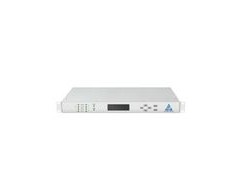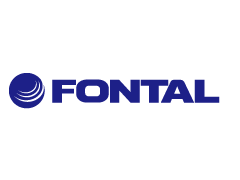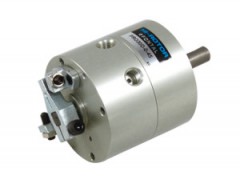Training
SMC International Training offers training courses and training aids focused on the development of the professional skills required for the most diverse sectors of industry. The evolution of automation in industry together with the integration of technologies found in automated processes has forced a rethinking of the work carried out in industrial plants. Tasks which were once manual are now automatic and this has created a high demand for qualified technical staff. SMC International Training is committed to offering training adapted to the needs of industry.
Training Courses
Training Equipment
FETAC
FAS

The new autoSIM-200 is a program for training automation technologies, very easy to use and install, which lets the user test programs on a virtual machine.
The only training environment which programs, simulates, refines and supervises your automated procedures.
Product features:
Design of automation applications (pneumatics, electro-pneumatics, hydraulics, etc)
Design of system supervision applications
Simulation of operations in 3D generation.
importation of 3D drawings (3D studio, AUTOCAD, SOLIDWORKS, SOLID CONCEPTER, etc.)
A fully configurable environment
Pneumate-200

The Pneumate-200 is a panel with the corresponding pneumatic/electro–pneumatic components which are moveable pieces. The panel is printed with standardised symbols of each component for easy identification.
Product features:
The pneumatic and electro-pneumatic components come with quick-release connections
Includes the necessary accessories such as pneumatic tubing, tube cutter, tube extractor, fittings, plugs, connection cables and main plugs
Comes in four available options
Light and portable
Pneutrainer-200

A fully modular system designed for the development of professional skills related to pneumatics and electro-pneumatics. Its flexibility makes the pneutrainer-200 equipment adaptable to all training requirements and needs.
Product features:
All components are used in an industrial capacity and are mounted on 4mm stainless steel base plates.
Pneumatic components include fittings with instant connections for tube 4mm O.D.
Relevant documentation provided.
Eurobox storage system which allows easy identification and storage.
Automate-200

The Automate-200 is SMC's solution to teaching automation technology. This is a fully modular system.
A series of functional blocks which allow multiple combinations and an endless range of activities with various levels of difficulty. The system is designed to promote teamwork through various activities such as competitions, joint layout design, etc.
Product features:
Familiarisation with technologies such as pneumatics, electro–pneumatics, sensors, motors or PLC's
Control modules include manual control panel and control panel via PLC
Includes 10 functional blocks allowing the user to design numerous configurations
Relevant documentation
MAP-200

The Map-200 supports the study of handling techniques. It reproduces the most common handling applications in an industrial environment through the use of electro-pneumatic technology.
Consists of four training applications which teach the user about the main handling applications used in electro–pneumatic technology. In each application a simple assembly process is carried out by reproducing a more complex process found in industry.
Product features:
Analysis
Assembly
Diagnosis and the repair of breakdowns
Relevant documentation
PLC programming
IPC-200

Fully modular and flexible equipment comprised of three modules which can work individually or as a whole. Various configurations can be created using the IPC-200 equipment.
IPC simulates a drink production and bottling plant and includes the industrial technologies using processes and products such as pneumatics, electro–pneumatics, PLC, sensors, fluid control and electric actuators. The training system is intended for the development of professional skills
Product features:
Analysis
Installation/assembly
Relevant documentation
PLC programming
MAS-200

This is a modular training system which simulates a real industrial assembly process, incorporating the technologies required by today’s automated industry. The complete system consists of five stations. The various parts of the final assembled product (base, bearing, shaft and lid) are fed into four of the stations. The fifth station is located between the others and is responsible for transferring and assembling the parts.
Technologies which are used by the MAS-200 include:
pneumatics and electro–pneumatics, electricity, sensors, PLCs, industrial communications, SCADA systems, identifications systems and robots.
The MAS-200 system is devised for the development of professional skills.
Product features:
Analysis
Assembly
Maintenance, diagnosis, and repairs
Start up, design and configuration
Programming, interpretation and elaboration of documentation
FMS-200

The FMS system is the ideal answer to integral training in industry automation. The technology included in its different assembly stations, as well as the varied assembly processes with several variants, allows the user to develop the professional skills required by today’s automated industry.
Product features:
The system includes a series of feeding, handling verification and loading operations.
All actions are carried out using components from different technologies (pneumatics, hydraulics, electro techniques, robotics)
The breakdown simulation system TROUB–200, generates up to 16 malfunctions to be diagnosed by the user
HAS-200

HAS-200 designed for state of the art technologies used in productive processes, responds to the needs of the most diverse sectors such as automotive, semi conductors, food and pharmaceutical.
The HAS-200 represents the fourth level in the automation pyramid and covers ERP levels for the introduction of production orders.
The HAS-200 system is also used at university level as a powerful development platform for research projects.
Product features:
Interaction with MES and graphic interface
Decision taking and project management
Programming a controller
Reacting in the event of “out of control” situations using SPC
Recovery/analysis/validation of data in a production chain


